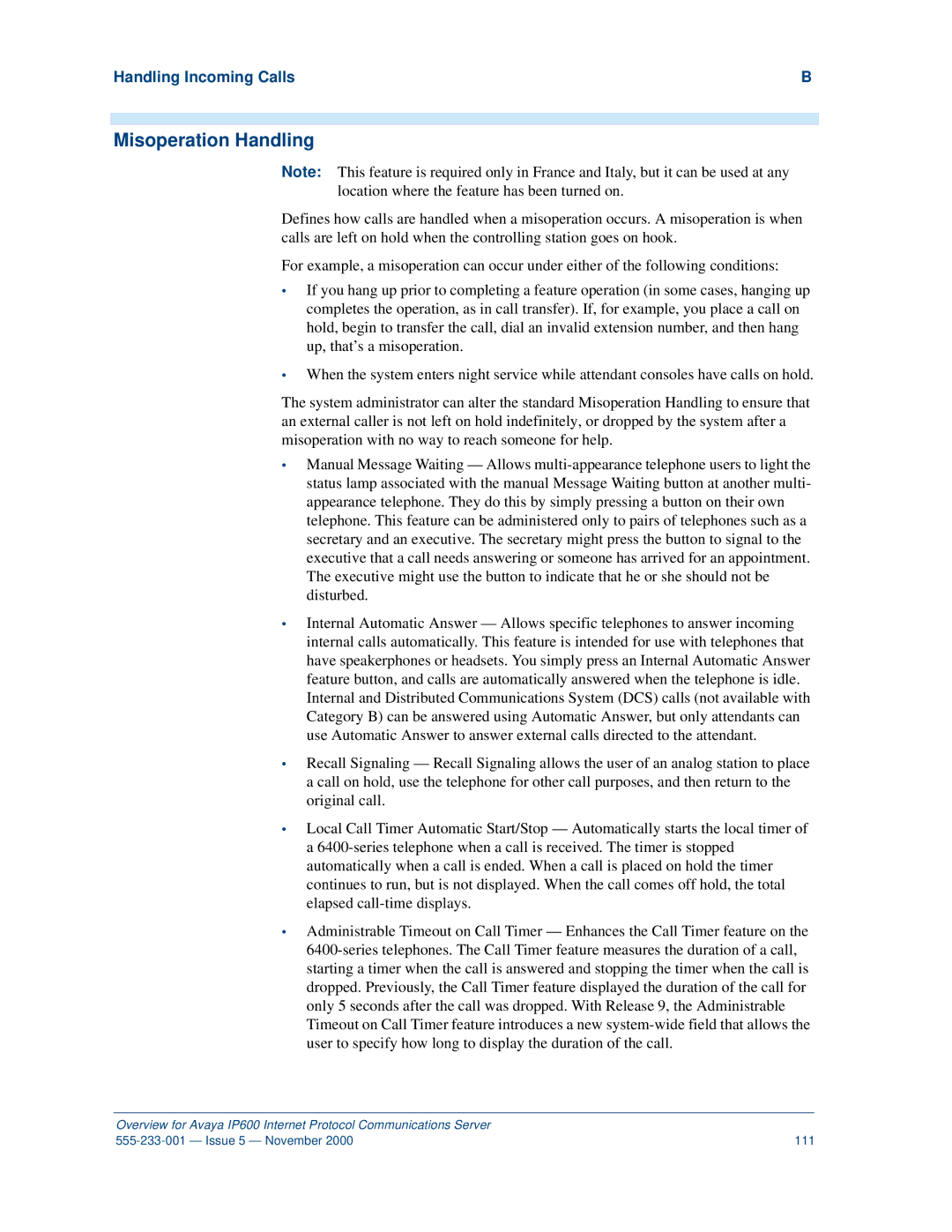
Handling Incoming Calls | B |
Misoperation Handling
Note: This feature is required only in France and Italy, but it can be used at any location where the feature has been turned on.
Defines how calls are handled when a misoperation occurs. A misoperation is when calls are left on hold when the controlling station goes on hook.
For example, a misoperation can occur under either of the following conditions:
•If you hang up prior to completing a feature operation (in some cases, hanging up completes the operation, as in call transfer). If, for example, you place a call on hold, begin to transfer the call, dial an invalid extension number, and then hang up, that’s a misoperation.
•When the system enters night service while attendant consoles have calls on hold.
The system administrator can alter the standard Misoperation Handling to ensure that an external caller is not left on hold indefinitely, or dropped by the system after a misoperation with no way to reach someone for help.
•Manual Message Waiting — Allows
•Internal Automatic Answer — Allows specific telephones to answer incoming internal calls automatically. This feature is intended for use with telephones that have speakerphones or headsets. You simply press an Internal Automatic Answer feature button, and calls are automatically answered when the telephone is idle. Internal and Distributed Communications System (DCS) calls (not available with Category B) can be answered using Automatic Answer, but only attendants can use Automatic Answer to answer external calls directed to the attendant.
•Recall Signaling — Recall Signaling allows the user of an analog station to place a call on hold, use the telephone for other call purposes, and then return to the original call.
•Local Call Timer Automatic Start/Stop — Automatically starts the local timer of a
•Administrable Timeout on Call Timer — Enhances the Call Timer feature on the
Overview for Avaya IP600 Internet Protocol Communications Server |
|
111 |
